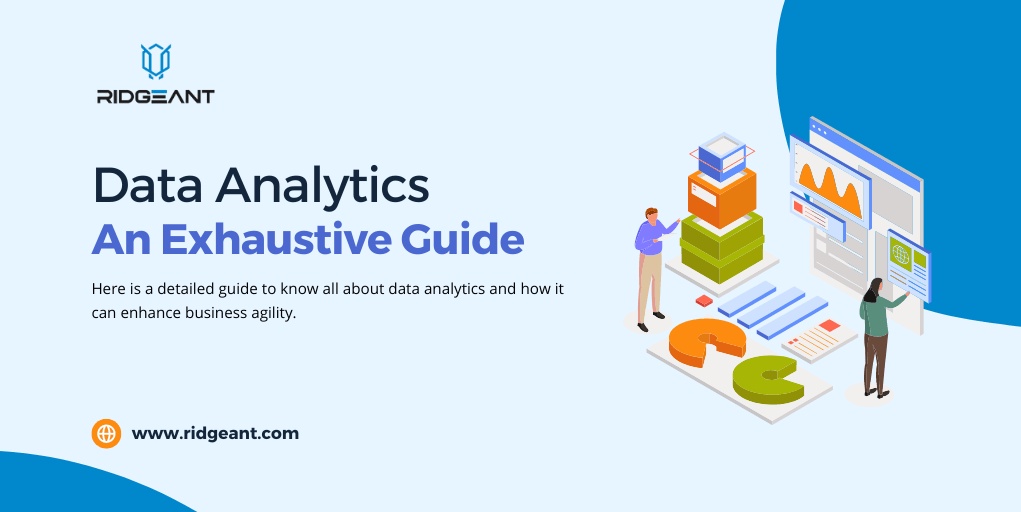Introduction
In today's data-driven world, organizations are constantly seeking ways to extract meaningful insights from vast amounts of information. This is where data analytics comes into play. Data analytics is the science of examining raw data to uncover patterns, draw conclusions, and make informed decisions. By leveraging advanced techniques and technologies, businesses can transform their data into actionable insights, gaining a competitive edge in their respective industries. In this blog post, we will explore the top five use cases of data analytics and how they are revolutionizing various sectors.
5 Use Cases of Data Analytics
Business Intelligence and Reporting:
One of the primary use cases of data analytics is business intelligence and reporting. By analyzing historical and real-time data, organizations can gain a comprehensive understanding of their operations, performance, and customer behavior. Data analytics tools enable businesses to generate insightful reports and visualizations, highlighting key metrics and trends. This empowers decision-makers to make informed choices, optimize processes, identify areas for improvement, and allocate resources efficiently. Whether it's tracking sales performance, monitoring supply chain operations, or assessing customer satisfaction, data analytics plays a crucial role in providing actionable insights for better decision-making.
Customer Analytics and Personalization:
In today's customer-centric landscape, understanding consumer behavior is paramount for businesses to thrive. Data analytics enables organizations to delve into customer data, such as demographics, purchase history, browsing patterns, and social media interactions. By leveraging this data, businesses can create detailed customer profiles, segment their audience, and develop personalized marketing strategies. With the help of predictive analytics and machine learning algorithms, companies can anticipate customer needs, recommend relevant products or services, and enhance customer satisfaction. Personalization through data analytics fosters stronger customer relationships, boosts sales, and drives customer loyalty.
Risk Assessment and Fraud Detection:
Data analytics is a powerful tool for risk assessment and fraud detection across various industries. By analyzing vast amounts of data, organizations can identify patterns, anomalies, and potential risks. For example, financial institutions can employ data analytics to detect fraudulent transactions, money laundering activities, or credit card fraud. Insurance companies can leverage analytics to assess risk profiles, detect fraudulent claims, and optimize underwriting processes. By integrating advanced analytics techniques like anomaly detection, machine learning, and network analysis, businesses can proactively mitigate risks, minimize losses, and safeguard their operations and assets.
Predictive Analytics and Forecasting:
Predictive analytics is a game-changer for businesses looking to make accurate forecasts and proactive decisions. By analyzing historical data, predictive models can identify trends, patterns, and correlations, enabling organizations to predict future outcomes. For instance, retailers can leverage predictive analytics to forecast demand, optimize inventory management, and plan promotions. Supply chain operators can anticipate disruptions, optimize logistics, and improve overall efficiency. Additionally, healthcare providers can leverage predictive analytics to forecast patient admissions, identify disease outbreaks, and optimize resource allocation. By harnessing the power of predictive analytics, businesses can enhance operational efficiency, reduce costs, and gain a competitive advantage.
Internet of Things (IoT) Analytics:
With the proliferation of IoT devices, there is an unprecedented amount of data generated by interconnected sensors and devices. Data analytics plays a vital role in extracting value from this data to drive innovation and efficiency. IoT analytics enables businesses to collect, store, and analyze data from diverse sources, such as smart devices, wearables, and industrial sensors. By integrating IoT data with advanced analytics techniques, organizations can optimize maintenance processes, improve product quality, and enhance operational performance. For example, manufacturing companies can leverage IoT analytics to monitor equipment health, detect anomalies, and enable predictive maintenance. Smart cities can utilize IoT analytics to optimize traffic management, reduce energy consumption, and improve urban planning.
Conclusion
Data analytics is transforming the way businesses operate across various industries. From business intelligence and customer analytics to risk assessment and predictive analytics, organizations are leveraging the power of data to drive informed decision-making, gain a competitive edge, and enhance operational efficiency. The top five use cases of data analytics discussed in this blog represent just a fraction of the possibilities offered by this powerful field. As technology continues to advance, the applications of data analytics will undoubtedly expand, enabling organizations to unlock valuable insights and drive innovation in the data-driven era.


No comments yet